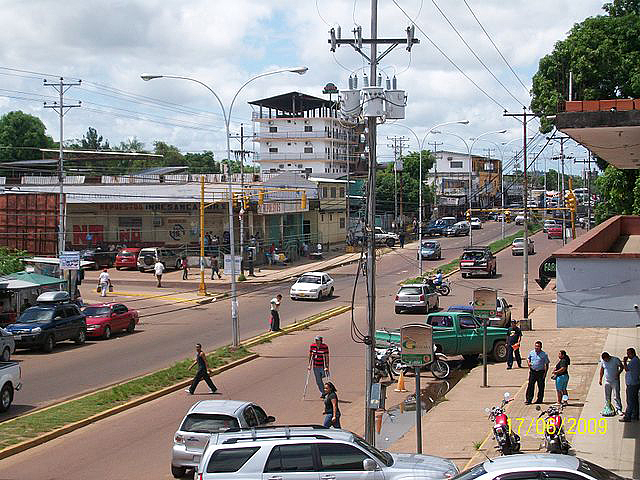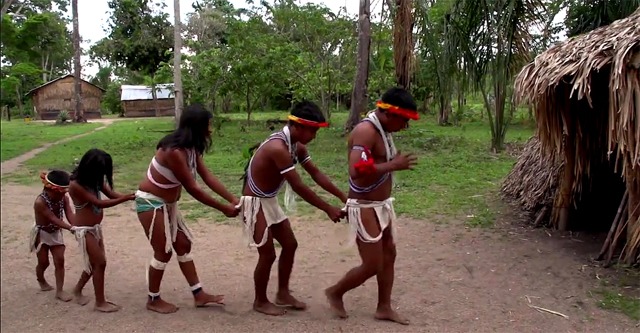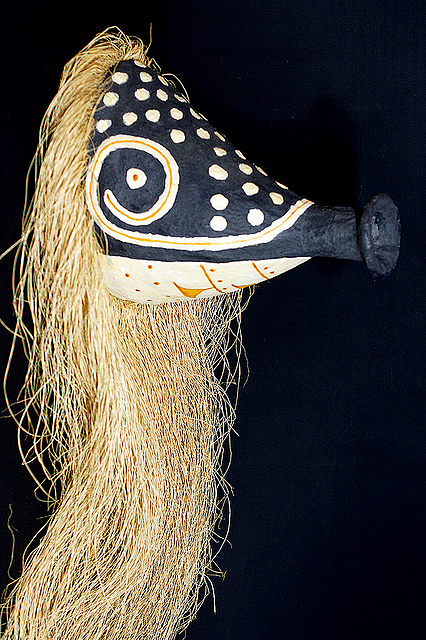On Friday May 12, at 8:00 o’clock in the evening, Freddy Menare, a prominent Piaroa leader, was assassinated in Puerto Ayacucho, the capital city of Venezuela’s Amazonas state. The as-yet unidentified gunmen shot the 48-year old man in the back while he walked along Orinoco Avenue, a busy commercial street near the indigenous market in the city. A variety of Venezuelan news sources covered the story and its ramifications last week.

According to one news report, he died on the floor of a business establishment called the Restaurante el Señor de los Milagros. Menare was a leader of the Piaroa in the Autana Municipality and a founder of the indigenous rights group Organización Indígena del Pueblo Uwottuja de Sipapo (OIPUS), the Piaroa People’s Organization of Sipapo. OIPUS is basically a political organization representing Piaroa in the Sipapo region of the state.
Various organizations immediately condemned the assassination. One, the WATANIBA Amazonian Socio-Environmental Working Group, said in the wording of a Google translation that Sr. Menare “was a simple, happy and committed indigenous person” who was active in defending the rights of the Piaroa people. He was in the process of demarcating the boundaries of Piaroa lands for a regional commission of the state. He also participated in human rights training programs, helped defend indigenous environmental rights, and built relationships with a Council of Elders. He was known for promoting the worldview, identity, and culture of the Piaroa.

The WATANIBA statement went on to list some of the problems that affect the society and traditional culture of the Piaroa. It did not directly link the assassination to any one of the criminal activities in the region that might have ordered the hit squad. But the illegal mining and smuggling that has plagued the region, prompting violence and murders, were mentioned. Again quoting a Google translation of the WATANIBA statement, the criminal violence in the state is “destroying the Amazon, its ancient cultures, forests, mountains and rivers, as well as violating the human rights of its original peoples.”
The Working Group on Indigenous Affairs (GTAI), located at the University of Los Andes in Mérida, Venezuela, also issued a forceful condemnation of the assassination. The second point in their statement emphasized that the murder occurred within the context of Piaroa condemnation of the illegal mining activities in the region. Those mining activities threaten Piaroa territory.

According to still another release, OIPUS and an allied organization, the Organización Regional de Pueblos Indígenas de Amazonas (ORPIA), issued a joint statement. In addition to condemning the atrocity, the statement indicated that from the moment Freddy Menare came face to face with the Piaroa creator god Wahari, the authors will not rest until the guilty parties are brought to justice.
That statement reinforces the importance of their traditional myths to at least some Piaroa of today. Overing Kaplan (1984) described the importance of Wahari to the Piaroa. She wrote that in addition to creating the sky, the land, and the Piaroa, he also fought in mythic times with his father-in-law, Kuemoi, a deity who focused on darkness and death—in other words, his father-in-law had an opposite nature to his own. But the myth pointed out the dangers of inequalities in a society and it reinforced Piaroa ways of overcoming strife through making proper marriages, effectively maintaining kinships, and accepting different levels of human relationships. But neither Wahari nor the Piaroa, at least in mythic times, had to deal with rapacious outsiders carrying guns.
It is interesting to note that speculations by people in Venezuela clearly include the mining interests as prime suspects for the crime. Those suspects are people whose commitments to illegal mining may be threatened by the Piaroa leaders. A news report from two years ago explained the dangers to the Piaroa from the coltan mining activities in Piaroa territory. Whether the police services of the state will be able to bring the hit men, and the people behind them, to justice remains to be seen.